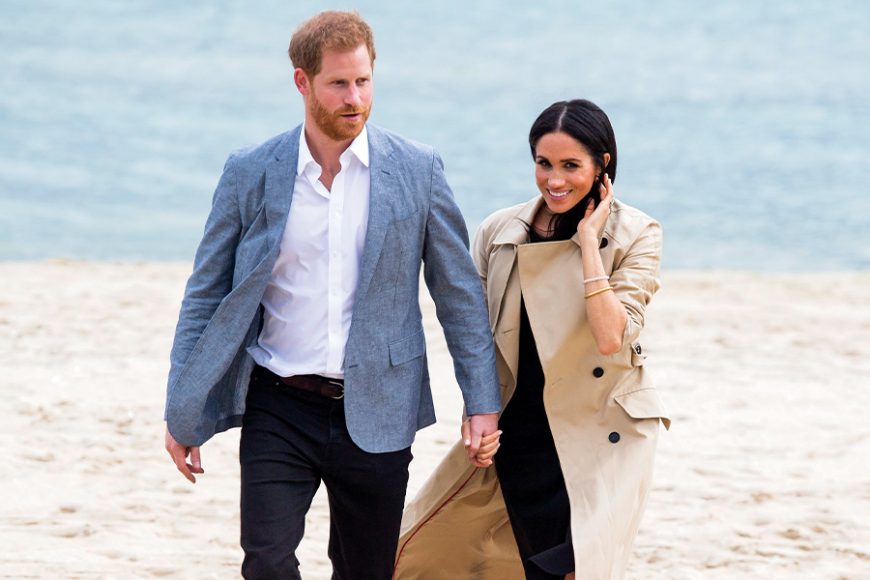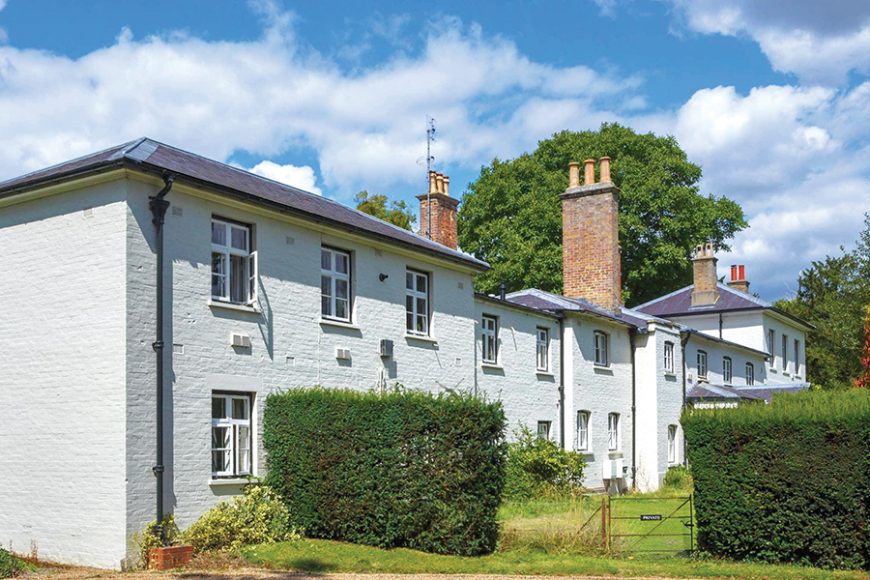“Happy families are all alike. Every unhappy family is unhappy in its own way.”
— Leo Tolstoy, “Anna Karenina”
When it comes to familial unhappiness, few families would seem to be more uniquely, spectacularly qualified than the House of Windsor, headed by Britain’s longest-reigning monarch, Queen Elizabeth II. And yet its members have endured, through bombings and wars, divorces and deaths, scandals and even an abdication.
That abdication — of the queen’s uncle, the former Edward VIII, for the American divorcée Wallis Warfield Simpson — and the death of Diana, Princess of Wales, haunt the recent decision by her younger son, Prince Harry, and his American-born wife, the former Meghan Markle, to “step back” from their duties as senior royals as well as the crown’s response to “Megxit.”
Harry and Meghan had sought to become part-time royals with one foot in England and another in North America — specifically Canada but ultimately the United States — albeit with benefits. Anyone who’s ever tried to restructure a job — and the British monarchy is as much a PR company, nicknamed “The Firm,” as it is a family — knows how that goes.
The queen reacted in the way you might imagine a savvy boss who’s also a wise grandmother would: She gave them a hard Megxit. Their most important titles, HRH, “His and Her Royal Highness,” gone — though not yet from their sussexroyal.com website as the changes do not become effective until the spring, with a review in one year. (The couple remain the Duke and Duchess of Sussex, which may not be enough to enable them to create a line of Sussex Royal goods, even one in keeping with “the values of Her Majesty.”) Public funding, gone. Harry’s military appointments — with which this British Army and Afghan War veteran had such a deep, emotional connection — gone, too.
Frogmore’s end?
And since the British seem to define relationships in part by real estate — see any number of English novels, particularly all of Jane Austen, the Brontës, Charles Dickens’ “Bleak House” and E.M. Forster’s “Howards End” — the duke and duchess have agreed to reimburse taxpayers for the $3.1 million in renovations to their British home, Frogmore Cottage, on the grounds of Frogmore Estate, adjoining Windsor Castle. Built in 1801 by Queen Charlotte, wife of George III, as a retreat for herself and her unmarried daughters, Frogmore takes its name from its preponderance of small frogs, which Queen Victoria found “quite disgusting.” Nevertheless, it has been at various times home to the American theologian William James Sr. and his family, Victoria’s personal secretary Abdul Karim and the Grand Duchess Xenia Alexandrovna, sister of Russia’s Nicholas II.
In 2019, Harry and Meghan converted the stucco-faced, two-story cottage into a single-family dwelling with four bedrooms, a nursery for their future son, Archie Harrison Mountbatten-Windsor, and a yoga studio for the wellness-minded Meghan. The renovations became a sticking point for the British public, although the cottage was always scheduled for a revamp. Now Harry and Meghan are responsible not only for that cost but the $13,000-a-month rental, all for a place they will rarely if ever use as they’ll continue to stay at a friend’s multimillion-dollar home on Vancouver Island for the foreseeable future and plan to summer in Los Angeles — perhaps in part to be near Meghan’s mother, Doria Ragland. (With support from Prince Charles, Harry’s father, and a combined worth of $45 million — most of which Harry inherited from his mother — the Sussexes are hardly wealthy in the Bloombergian sense. But that could change if deals with companies like Netflix come to fruition.)
Frogmore Cottage is likely to remain a lightning rod as well as a symbol of a royal house — and public opinion — divided. More liberal websites like BuzzFeed, The New York Times and Vox decry the very real racism that the biracial duchess has been subject to in the media and among certain posters. Her supporters, along with her husband, see ominous parallels between her crucible at the hands of media jackals and Diana’s death in a Paris tunnel with the pursuing press photographing her dead body.
But if the duchess is Diana 2.0 — as the young Meghan wished herself to be — she is also in the minds of conservative websites like that of Fox and The Daily Mail to be Wallis 3.0 — an opportunist using a malleable spouse to get what she wants. Men, however, tend to marry women who reflect their own ambitions. If Harry — who struck us as a regular bloke when he played in a celebrity-studded match for his Sentebale charity at Greenwich Polo Club in 2013 — longed to escape like his mother, who loved to play hooky in New York, perhaps the independent-minded Meghan merely provided the impetus for him to do so.
Timing is everything
It’s complicated, though, isn’t it? At the heart of this story — and what make it resonate with so many — is one of the challenges of the human condition, the relationship of the individual to the group. We want to be with others but belong to ourselves, to be a part of and apart from. “Lend yourself to others, but give yourself to yourself,” the great French Renaissance philosopher Michel de Montaigne advised.
This is particularly true when a couple is recently married and starting a family — something the queen herself alluded to in her response to the Sussexes’ announcement. In this she was only echoing the thoughts of Jesus, who says in Matthew 19:5: “For this reason a man will leave his father and mother and be united to his wife, and the two will become one flesh.”
But an exit is measured by the gracefulness with which it is executed. It didn’t help that the Sussex announcement appeared to be made in haste — perhaps to beat a press that had sniffed it out already — blindsiding the royals. Or that it was made right before the Jan. 9 birthday of Catherine, Duchess of Cambridge — wife of Harry’s older brother, Prince William — who by many accounts had been trying to broker a peace between the increasingly estranged brothers and bolster a fragile Meghan.
Nor were skeptics reassured by the Sussexes seeking to redefine the duties the queen had given them. But that’s a millennial thing. “It isn’t working for me,” Meghan reportedly said of the ribbon-cutting, fascinator-sporting life to which it now appears she was temperamentally unsuited as a feminist, an American and an expressive individual. If there is a racial and cultural divide in the tale of Harry and Meghan’s leave-taking, there is a generational one as well. After all, the Americans Princess Grace of Monaco and the now dowager Queen Noor of Jordan were beloved for their commitment to their adopted countries. That, however, was a different era.
An ocean away
So the way Harry and Meghan departed for new digs stunned the royal family and British public. But that they left at all was bound to hurt. No one likes to be rejected and no one likes to feel like a fool, having been kept out of the loop. Setting up a new house in a new land begs the question, What of the family they have left behind, beginning with the queen herself, a lioness in winter with an ailing husband, a good girl who like many a good girl was always attracted to the bad boys and doted on the charmingly roguish, heart-on-his-sleeves Harry? What of the father, Prince Charles, who, perhaps because of the mistakes he made with his first wife, Diana, was attentive to their sons and supportive of their wives, accompanying Meghan down the aisle? What of the brother, William, who told The Sunday Times: “I’ve put my arm around my brother all our lives and I can’t do that anymore…I’m sad about that”? Or Catherine — Kate — whom Harry always said was more of a sister than a sister-in-law? Finally, what of the nation that watched a little boy follow behind his mother’s casket and took him into its heart?
One thing about being the rejected: You can always reject in turn. In her Jan. 18 statement, the queen said, “Harry, Meghan and Archie will always be much loved members of my family.” Those who saw a grandmother’s tenderness in those carefully chosen words missed the point. The phrase “will always” implies not a continuation but a leave-taking. Just ask Dolly Parton, whose song “I Will Always Love You” was written to free her of her contract to Porter Wagoner.
In setting up house an ocean away, Harry and Meghan have gained but also lost.






